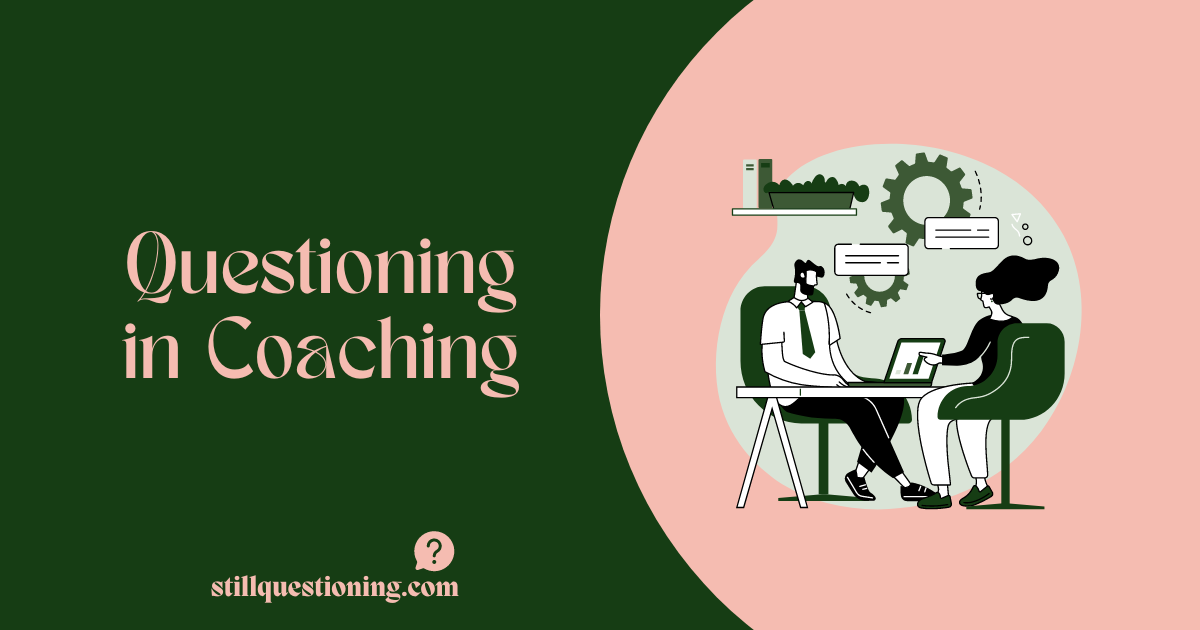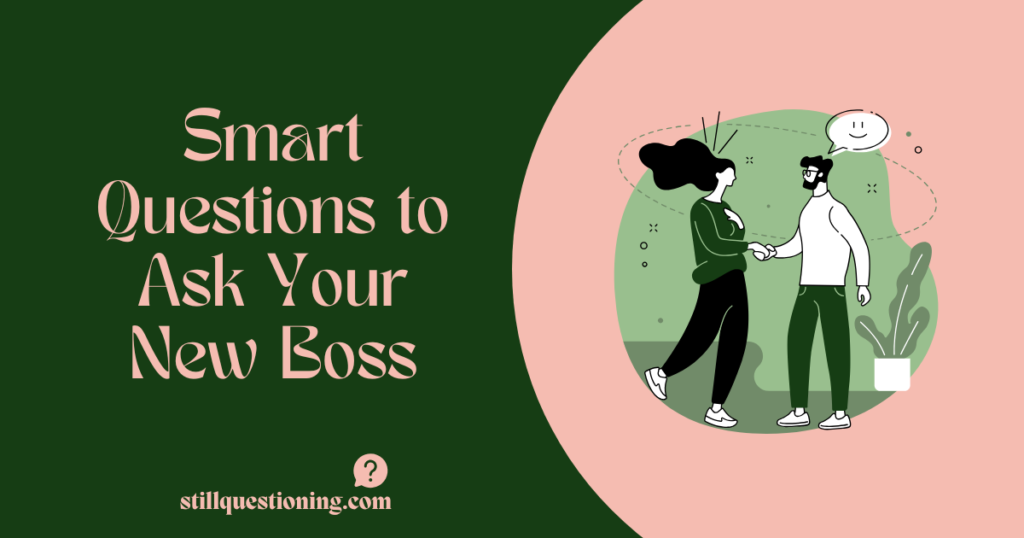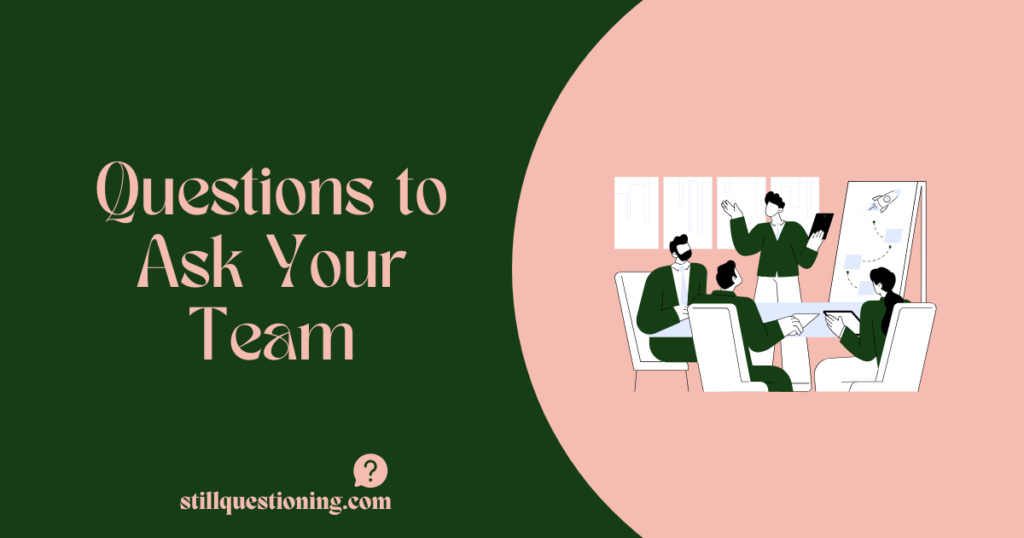Have you ever been in a discussion that bordered on an interrogation? You know, when someone puts you on the spot with a million questions, it makes you feel like you are under the lights of a police department.
OK, in the coaching world, it’s not about grilling people until they confess. Rather, it is the art of asking questions that release potential. Let’s dive into the art of questioning in coaching, where we’ll explore the power of inquiries and the types of questions that can transform a coaching session, and yes, we’ll even have a bit of fun with an FAQ section. Buckle up; it’s going to be an enlightening ride!
Table of Contents

The Power of a Good Question – Questioning in Coaching
Remember when you were a kid, and you would ask “why” about everything? Well, in coaching, we bring back that childlike curiosity but with a bit more finesse. The right question can be like a key turning in a lock, opening up new possibilities and perspectives. It’s not about giving advice or providing solutions on a silver platter. Instead, it’s about guiding the coachee to find their own answers. It’s like being a detective, but instead of solving crimes, we’re unravelling the mysteries of someone’s potential.
Types of Questions That Make a Difference – Questioning in Coaching
- Open-Ended Questions: These are the bread and butter of coaching questions. They’re like open invitations for the coachee to explore their thoughts and feelings. Think of questions like “What are your goals?” or “How does this situation make you feel?” They’re the equivalent of a friendly nudge in the direction of self-discovery.
- Reflective Questions: These are the mirror-holding questions. They reflect back on what the coachee has said, allowing them to see their thoughts from a new angle. It’s like saying, “So, what I’m hearing is…” and then waiting for the ‘aha’ moment to happen.
- Probing Questions: Now, these can be tricky. They dig a little deeper, like a friendly archaeologist uncovering the hidden treasures of someone’s mind. Questions like “What’s holding you back?” or “Why do you think that is?” require a bit of finesse and timing.
- Hypothetical Questions: These are the “what if” questions. They encourage coachees to think outside the box and explore different scenarios. It’s like taking a mental road trip to the land of possibilities.

You May Also Like:
- Questioning Techniques
- Open and Closed Questions
- 15+ Questions for a Therapist
- Questions for Higher-Order Thinking
- What Are Probing Questions?
The Role of Listening – Questioning in Coaching
Before we move on, let’s not forget the unsung hero of coaching – listening. A coach’s ability to listen is just as important as their ability to ask questions. It’s about active listening, where you’re fully present, not just waiting for your turn to speak. It’s like being a human antenna, tuned into the frequency of the coachee’s thoughts and feelings.

FAQs: Your Coaching Questions Answered
What if I ask a question and get total silence?
Ah, the sound of silence. Don’t panic! Silence can be golden in coaching. It often means the coachee is thinking deeply. Give them space to process. It’s not an awkward pause; it’s a thoughtful interlude.
How can I make sure I’m asking effective questions?
Practice, reflection, and feedback are your best friends here. Also, consider using tools like AhaSlides to create word clouds. It’s a subtle way to visualize the most frequent thoughts or themes in a conversation, giving you insight into what areas to explore further with your questions.
Can I ask personal questions?
Tread carefully. It’s essential to build trust and rapport first. Personal questions should be relevant to the coaching goals and asked with sensitivity. It’s not an episode of a reality TV show where you’re digging for juicy gossip.
What if my question offends the coachee?
First, don’t panic. Apologize and clarify your intent. Remember, it’s a learning experience for both of you. Coaching isn’t about being perfect; it’s about being real and human.
Conclusion
In conclusion, questioning in coaching is an art form. It’s about asking the right questions at the right time to help someone unlock their potential. It’s not about having all the answers but about guiding the coachee to find their own. Just go ahead, channel your inner curious child, and start asking those transformative questions.
Remember, every great conversation starts with a question. So, still questioning and staying curious!





